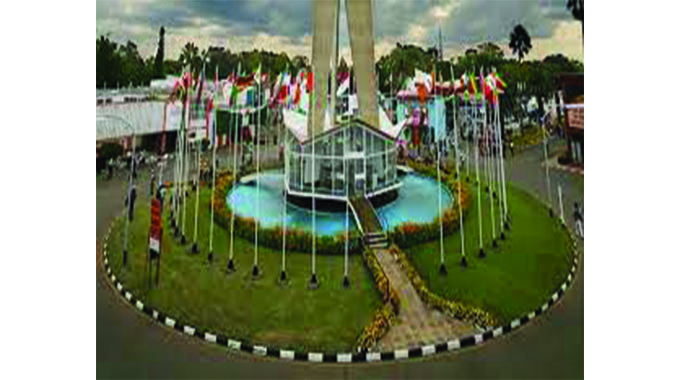Relief for Emganwini diarrhoea victims

Yvonne Ncube , Chronicle Reporter
Zimbabwe Disaster Rapid Response Mechanism (ZDRRM) yesterday distributed sanitisers and water purifying chemicals to 51 households in Bulawayo’s Emganwini suburb who fell victim to suspected unsafe tap water, leading to a diarrhoea outbreak.
Each household received two by 20 litre water buckets, 500ml sanitizers, two bars of washing soap, two 20 litre containers and at least 20 Aquatabs.
ZDRRM project co-ordinator Mr Paul Moyo said the organisation extended a helping hand in response to a media outcry in the past week.
“We learnt that there was a diarrhoea outbreak in Emganwini and Nketa so we decided to extend our arm since this is what we do. We respond to localised disasters so as to reduce the amount of damage to the community. We collected the names of affected residents from the city council and during the weekend we were doing door-to-door registration. Unfortunately, some residents had submitted wrong addresses and could not be located,” said Mr Moyo.
He said re-registration would be done for new victims and those who could not be located.
“We will register new victims and those who could not be located because other victims are only coming out now. Our objective as a project is to save lives. We are not worried about numbers because the items we already have are in our warehouse so what we do is wait for localised disasters then we distribute them.
“The response to disasters is a period of 72 hours. Once a disaster strikes, within 72 hours we carry out a rapid metre assessment where we register victims and deliver whatever need is required within that particular community within the stipulated period,” said Mr Moyo.
He said this was the organisation’s fourth diarrhoea response in the city since last year.
“This is our fourth response to diarrhoea outbreaks. We have before this, responded to three other diarrhoea outbreaks in Luveve, Mzilikazi and Magwegwe, respectively. As for Aquatabs tablets, one tablet is put in a 20-litre bucket of water and left for 30 minutes to dissolve after that the water is safe to drink but they can stir for effective results,” said Mr Moyo.
ZDRRM is a project being implemented by a consortium comprising Dan Church Aid (DCA), CARE and PLAN and is funded by the European Union.
The project’s principal objective is to strengthen response mechanisms and preparedness for localised rapid onset emergencies in Zimbabwe.
The ZDRRM project is operational in high-risk provinces and districts based on past disasters. Support is provided in the form of non-food items or cash.
The success of the programme is anchored on its ability to respond to disasters as quickly as possible, hence the need to put in place a robust logistical framework.
Councillor for Ward 26, Mzamo Dube said the community were grateful for the kind gesture.
“I would like to extend my gratitude to the organisation for providing relief to us. At least now residents have clean water buckets to store their water. I would also like to thank the city council. We are recognising the efforts they are making in trying to curb the outbreak,” said Cllr Dube.
He urged residents to boil water before drinking.
“I urge residents to check water before drinking, monitor children and also to utilise the bowser that is provided to us by the council,” he said.
Bulawayo United Residents Association (BURA) chairperson of Ward 26, Mr Janana Ngwenya said some residents had not been captured as diarrhoeal cases kept increasing.
“The short list of residents that benefited today from this relief fund was compiled on the first victims; however, there are some reports that came after I had compiled the first list. If we were to visit the clinic right now, it wouldn’t be shocking that numbers now exceed a hundred because people keep drinking contaminated water.
“Urgent action needs to be taken on this outbreak before it becomes deadly. for now, we are recording infections. If action is not taken to purify the water very soon, we will be recording deaths. Some beneficiaries sent representatives because they are bed ridden in hospital,” said Mr Ngwenya.
Beneficiaries told the Chronicle that the water they consume is not suitable for human consumption.
Mrs Magreth Phiri, one of the diarrhoea victims, said four of her children have missed school because they are still weak.
“The water that we get from taps is not consumable. It has small black particles. All my four children have been affected and have not been going to school for three weeks. I took them to the local clinic where they received treatment but they have not fully recovered. I’m grateful for the pills at least now I’ll be able to treat the water before they drink it,” said Mrs Phiri.
Miss Nothando Mloyi said the water smells like sewage.
“The water will be green in colour and smells like sewage. I tried boiling it but we could not drink it. I was vomiting, weak and had a severe headache. I visited the local clinic where I got treatment, I have been better, my husband has not had any luck in recovering,” she said.
Mrs Magret Sibanda said she had rushed from Nkayi to attend to her children who have been sick for four weeks.
“I was told three weeks ago that the children were not feeling well, at first I thought that it was going to pass but as time went by without change, I had to come. This is the fourth week and they are still weak despite having received treatment,” said Mrs Sibanda. -@SeehYvonne









Comments